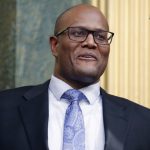The Socio-Economic Rights and Accountability Project (SERAP) and the Nigerian Guild of Editors (NGE) have raised alarm over what they describe as a growing trend by the administration of President Bola Ahmed Tinubu to weaponize the Cybercrimes (Prohibition, Prevention, etc.) Act 2015 to clamp down on freedom of expression and silence government critics.
In separate but strongly worded statements issued over the weekend, both organizations condemned recent arrests and detentions of journalists, online commentators, and civic activists under the guise of enforcing cybercrime laws. They asserted that the pattern signals a disturbing erosion of democratic norms and fundamental human rights, particularly the right to free speech as enshrined in the Nigerian Constitution and various international human rights treaties to which Nigeria is a signatory.
According to SERAP, the Tinubu-led government is increasingly resorting to sections of the Cybercrimes Act—especially those pertaining to alleged “cyberstalking” and “false information”—to justify the arrest, harassment, and intimidation of dissenting voices. The organization described these moves as repressive and urged the federal government to immediately cease the misuse of legislation meant to protect citizens.
“Freedom of expression is a cornerstone of any democratic society,” SERAP stated. “Using the Cybercrimes Act to target critics, whistleblowers, and journalists is a clear violation of Nigeria’s international obligations under human rights law, including the African Charter on Human and Peoples’ Rights and the International Covenant on Civil and Political Rights.”
The group also pointed out that the continued use of the Act in this manner may create a chilling effect, where individuals become too afraid to express their opinions or expose wrongdoing for fear of legal consequences.
The Nigerian Guild of Editors echoed similar concerns, stating that the clampdown on media practitioners and content creators under the cover of cybercrime prosecution is an affront to press freedom. The Guild noted that several editors, reporters, and online publishers have been arrested or invited for questioning in recent months over articles and posts deemed critical of government policies or personalities.
“We are witnessing a resurgence of attempts to gag the media, reminiscent of military-era tactics. The Cybercrimes Act must not become a tool for authoritarianism,” the NGE warned. “Any law that is misused to shrink civic space or muzzle free press must be revisited.”
Legal experts and civil society leaders have also lent their voices to the ongoing debate. According to Barrister Nneka Opara, a human rights lawyer based in Abuja, there is a need to amend the Cybercrimes Act to ensure it is not weaponized against legitimate expression.
“The original intent of the Act was to combat online fraud, identity theft, and other cyber threats—not to suppress criticism or silence journalists. Unfortunately, vague provisions in the law are now being used to target individuals for merely speaking their minds,” Opara noted.
Several high-profile cases have recently stirred national concern. These include the arrest of social media users accused of posting “offensive” comments about government officials, as well as journalists charged under the Act for publishing investigative reports on public sector corruption. In some instances, the accused have spent days or weeks in detention without formal charges.
Civil society organizations are calling for a judicial review of the Cybercrimes Act and an immediate halt to what they describe as “the criminalization of free speech.” They argue that if the current trend continues, it could undermine the credibility of the Tinubu administration and worsen Nigeria’s already declining global reputation on press freedom indices.
Nigeria ranked 123rd out of 180 countries in the 2024 World Press Freedom Index, reflecting the increasingly hostile environment for journalists and independent media. Advocates warn that continued arrests under the Cybercrimes Act could push this rating even lower, further damaging investor confidence and civic engagement.
In a democracy, SERAP stressed, the role of critical voices cannot be overstated. “Holding leaders accountable, exposing corruption, and amplifying the voices of marginalized citizens are essential functions of both media and civil society,” the organization said. “No democratic government should fear criticism—only autocracies do.”
Calls are mounting for the National Assembly to initiate an urgent review of the Cybercrimes Act to strike out ambiguous sections that could be misinterpreted to target legitimate speech. Activists also want clear guidelines on the enforcement of the Act, including judicial oversight, to prevent abuse by security agencies and politically motivated prosecutions.
While the presidency has yet to formally respond to these allegations, government spokespeople have previously defended the use of the Cybercrimes Act as a necessary tool for maintaining public order in the digital age. However, critics argue that public order cannot come at the cost of constitutional rights.
As tensions rise over the issue, SERAP and NGE insist that the Tinubu government must make a clear commitment to uphold human rights and democratic freedoms. Failure to do so, they warn, could plunge the country into a new era of digital authoritarianism masked as law enforcement.





